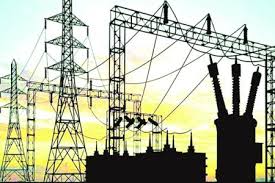By Milcah Tanimu
The recent hike in electricity tariffs by the Nigerian Electricity Regulatory Commission (NERC) has stirred significant concerns among consumers, as the federal government aims to curtail subsidy costs amidst economic challenges. Here’s a breakdown of the situation:
– *Affected Consumers*: NERC’s tariff adjustment is expected to impact around 1,974,385 electricity consumers. The move is part of a broader strategy to reduce the estimated ₦2.9 trillion electricity subsidy in the 2024 fiscal year.
– *Reasons for Hike*: Cash flow constraints, resulting from the government’s inability to meet financial obligations to the Nigeria Electricity Market, have prompted the tariff increase.
– *New Rates*: The tariff for Band A customers, who typically receive 20 hours or more of electricity supply daily, surged by 230 percent from ₦68 per kilowatt-hour to ₦225/kWh. Band A consumers will no longer benefit from federal government subsidies.
– *Unsustainable Subsidy Payments*: According to NERC, sustaining subsidy payments across different customer bands has become untenable. President Bola Tinubu had previously frozen electricity tariffs at December 2022 levels, promising to cover the difference as subsidies. However, the government has yet to fulfill this commitment, resulting in a substantial accumulation of debts.
– *Impact on Consumers*: Economists and industry experts predict adverse effects, including higher utility bills, reduced disposable income, increased operational costs for businesses, and inflationary pressures. Low-income earners are particularly vulnerable to these changes, which could exacerbate poverty levels.
– *Stakeholder Reactions*:
– The Trade Union Congress of Nigeria (TUC) decries the tariff hike, labeling it as unacceptable and a potential trigger for unrest.
– Energy experts warn of strained household budgets and potential implications on consumer spending habits.
– Dr. Muda Yusuf from the Centre for the Promotion of Private Enterprise emphasizes the need to address fundamental issues within the electricity value chain, such as technical and commercial losses.
– Clifford Egbomeade, a Communications & Economy expert, highlights the impact on businesses, foreseeing higher operating costs and potential layoffs.
– The Peoples Redemption Party (PRP) condemns the decision, citing insensitivity and disregard for citizens’ welfare, urging the government to reconsider.
Amidst these concerns, stakeholders call for a comprehensive review of the tariff hike and emphasize the importance of prioritizing citizens’ well-being amidst economic challenges.

